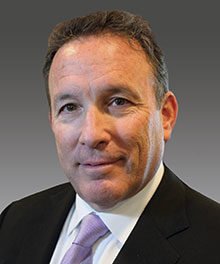Tragedy In Nashville

Six people died in the mass shooting at the Covenant School in Nashville on Monday, including three children. The others were staff members, including Katherine Koonce, the head of the school, who lost her life trying to protect the students. According to the Nashville police chief, the shooter, a former student, was “under a doctor’s care for an emotional disorder.” That didn’t stop her from legally securing the seven weapons she had in her possession when she mowed her victims down.
Apparently we haven’t learned much in the 24 years since the Columbine school massacre or the 13 years since Sandy Hook.
Despite the public outcry that takes place every time another one of these tragedies occurs—and there have now been too many to name—it’s clear that we, as a society, are not taking rational steps to put an end to the madness. There have already been 16 shootings at schools so far this year, according to CNN – and it’s not even April!
Many had high hopes after President Biden signed a sweeping bipartisan law last summer that enhanced background checks on gun buyers ages 18 to 21 years old and encouraged states to create stronger laws to avoid selling guns to people whose past behavior or mental health status raised red flags. That law didn’t stop the Covenant School tragedy from happening. There was no red flag law in Tennessee. The shooter legally patronized five local gun shops where she successfully obtained her arsenal.
The issue is more pressing than ever at a time when many Americans of all ages—most especially our young people—are struggling emotionally after emerging from the isolation of the pandemic. The number of pediatric hospitalizations for suicide attempts and suicidal thinking is at an all-time high, having soared 26% over the past decade.
I certainly don’t have all the answers. But as a parent of school age children and a CEO, the Nashville school shooting hits close to home for me on two fronts. It hurts me to think that a whole generation of children have gone to school at a time when metal detectors are a necessity—or that many young employees have never had a chance to work in an office building that didn’t have to be as battened down as Fort Knox. The only way to solve this issue is together. We need to put partisanship aside, and put our collective self-interest at the forefront.
We also need to be able to come together without fear in the literal sense—especially now that we are no longer confined at home. Children and teachers should not have to worry about getting gunned down at school.
As business leaders, it is incumbent upon us to do what we can, within our own spheres of influence, to prevent these incidents from happening. We may not have a significant influence over schools, but we do have the opportunity to consider how our company policies and corporate social responsibility goals could have a positive effect in preventing gun violence. Our decisions on safety and security and mental health benefits also have an impact. And we are in the position to support our teams by maintaining a positive and balanced workplace culture that supports good mental health. No business can serve its clients and customers well if its team is constantly stressed or burned out.
In business, there are problems so complex that a single solution won’t cut it; companies need to execute multiple steps simultaneously. This seems to be the case with gun violence, as well. CEOs came together back in 2019 to ask Congress to get tough on gun violence, as I discussed in this column. We need to do more, do it now, and in a spirit of cooperation. Our lives depend on it.
Wednesday night is the first night of Passover, the Jewish holiday that commemorates the exodus of Jewish people from slavery in Egypt. To those of you who observe, Happy Passover.
